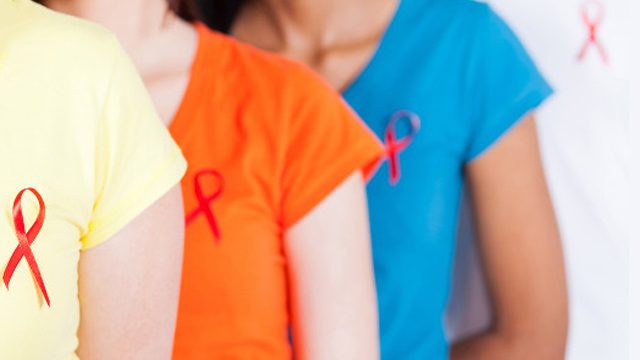SUMMARY
This is AI generated summarization, which may have errors. For context, always refer to the full article.
 Yuan Sintoy is concerned.
Yuan Sintoy is concerned.
His clients lining up for an HIV test are getting younger and younger –and that poses a problem.
Under the current law, minors cannot get a confirmatory HIV test without parental consent.
“A lot of those we counsel engage in freelance sex work to buy clothes or play video games. Some do it for purely economic reasons,” said Sintoy, executive director of PH4, an HIV care and support group in Palawan.
Offering HIV screenings, a quick blood test that functions much like a pregnancy test, is a way to circumvent the minimum age requirement.
However, if a screening comes out reactive – one step short of positive – the client will be referred to a Department of Health (DOH) testing center for confirmatory testing. It is only a positive confirmatory test that will allow a client to enroll in and avail of free anti-retroviral therapy (ART).
ART, a daily medicine regimen, allows a person living with HIV (PLHIV) to live a healthy and normal life. Without ART to suppress the HIV virus, the immune system weakens and becomes vulnerable to sicknesses like pneumonia or tuberculosis. A highly-compromised immune system will not be able to fight off these illnesses.
Unfortunately, there is no way around the parental consent prerequisite for confirmatory testing.
The DOH identified Palawan as one of the provinces with increasing HIV infection rates. Efforts to make HIV testing and condoms available to vulnerable groups like adolescents are hampered by current HIV legislation that many activists say is “outdated” and “out of touch” with the current HIV epidemic. (READ: The HIV Generation: 25 people get infected daily in PH)
No longer a death sentence
Because of many medical advancements in HIV research, treatment and care, HIV is no longer the death sentence that it was when it was first discovered in the 80s.
But for more than 228 Filipinos it is. Based on the latest DOH data, that’s the number of Filipinos who died from AIDS-related complications this year. That’s more than one death a day.
Of the 34,158 total HIV infections reported as of May 2016, more than 27,000 (about 85%) were diagnosed from 2011-2015. During this time, new HIV infections rates increased by about 230%, with numbers clustered around men who have sex with men (MSM) in their early 20s.
The DOH estimates that there are many more deaths that go unreported because people are either not diagnosed or simply go untested and die.

A recent DOH study on adolescent HIV estimates that there are 9,559 adolescents who have HIV, but only 10% have been diagnosed. Currently, only 381 are enrolled on anti-retroviral therapy.
“We cannot treat them if we cannot diagnose them. If we don’t identify them and get them on ARV now, these adolescents are going to die within the next 10 years,” said Genesis Samonte, head of the DOH HIV/AIDS surveillance unit.
Hot topic
There are currently an estimated 1.8 billion adolescents around the world. The largest generation of young people in history is entering their reproductive years.
The United Nations Population Fund (UNFPA) reports that young people between the ages of 15-24 are having more sex than ever before but have limited access to adequate sex education and contraceptive services.
At the AIDS 2016 Conference in Durban, South Africa earlier this month, adolescents were a hot topic.
According to the United Nations Children’s Emergency Fund (UNICEF), the number of adolescents dying from AIDS-related complications has tripled over the last 15 years.
AIDS is the number one cause of death among adolescents aged 10 to 19 in Africa and the second leading cause of death among adolescents globally. In some countries, minors and unmarried individuals are prohibited from getting contraceptives and HIV testing/STI treatment without parental consent.
Kenya, like the Philippines, has laws that prevented minors from getting an HIV test without parental consent. To address this, Kenya came up with the mature minor concept.
“Changing laws takes a long time,” said Nduku Kilonzo, Executive Director of the National Aids Control Council (NACC) of Kenya at the AIDS Conference. “We came up with the mature minor concept to include adolescents starting age 15 into the legal framework of many of public health polices such as HIV testing.”
Authorizing doctors to give proxy consent for minors who want to get tested is reportedly being discussed. The Philippine National AIDS Council and the DOH did not comment when asked about the status of this initiative.
Some organizations are not waiting for laws to change before giving minors access to HIV testing.
“We follow this ethical principle in medicine – it is unethical to deny a minor a life-saving intervention simply because he does not have the legal capacity to provide informed consent,” said Dr Rossanna Ditangco, chief of the HIV/AIDS research program at the Research Institute for Tropical Medicine (RITM), the largest HIV treatment hub in the country and the medical partner of LoveYourself.
“I am the highest ranking officer in this health facility, and I can take on the responsibility of this life-saving intervention for the minor,” Ditangco explained.
It is interventions like this that are badly needed.
The other day a 15-year old boy’s HIV screening at PH4 came out reactive. Sintoy told him that he would need to go through confirmatory testing and reminded him to bring along a parent or guardian or, in their place, written consent.
That was more almost a week ago. Sintoy hasn’t heard from the boy since. – Rappler.com
Add a comment
How does this make you feel?
There are no comments yet. Add your comment to start the conversation.